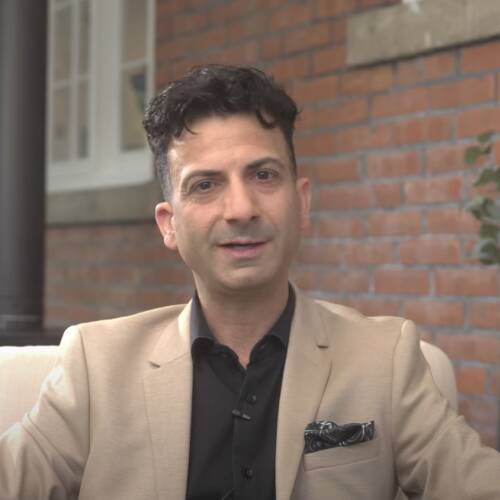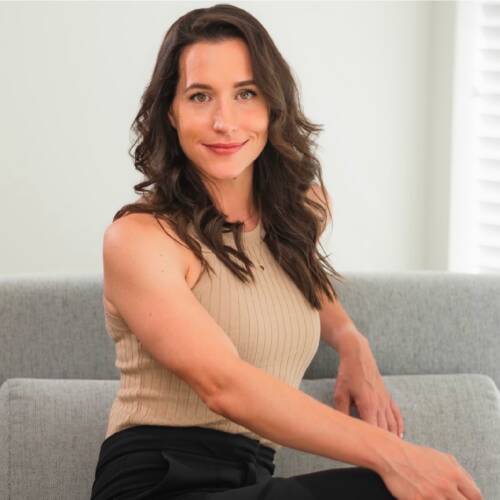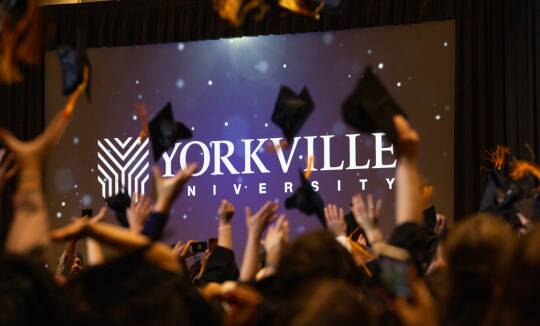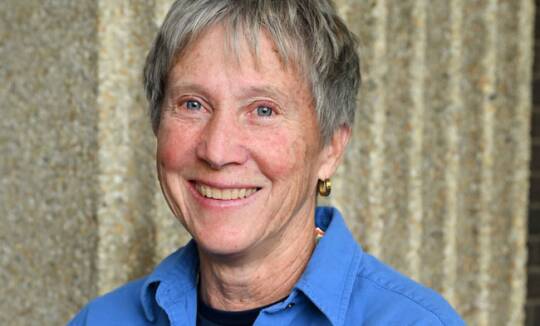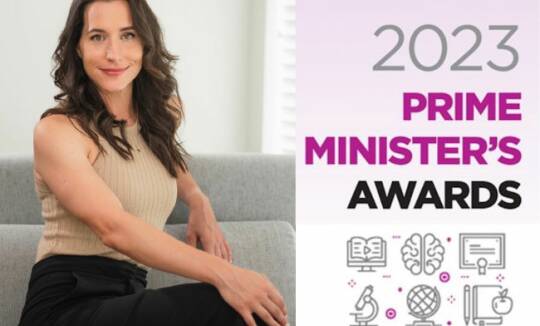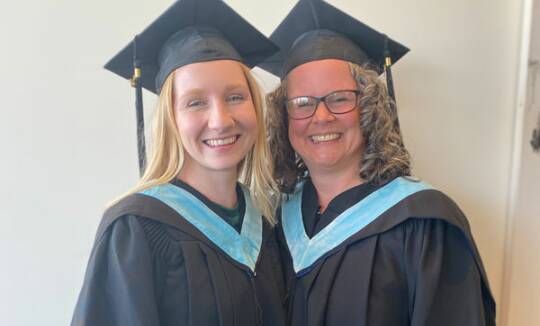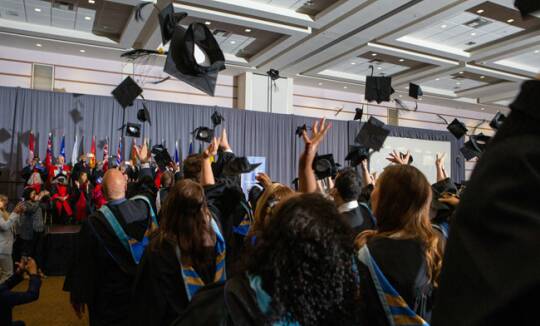
M.Ed. in Educational Leadership Specializing in Leadership in Learning (Online)
Cultivating Forward-thinking Leaders in Education
The Master of Education in Educational Leadership specializing in Leadership in Learning cultivates forward-thinking leaders in post-secondary education, community education, corporate learning and development, and non-profit organizations.
This interactive program empowers professionals to navigate challenges, champion initiatives, and lead transformative change within their organizations.
Distinguished by its specialization, we provide a unique focus on leadership within the context of evolving educational paradigms.
Delivered entirely online, our asynchronous program offers unparalleled flexibility, seamlessly integrating with your busy lives and professional commitments.
Upon completion, graduates emerge as adaptive and visionary leaders, well-equipped to drive positive change in a variety of learning environments.

18
Students per class
3
Start dates per year
New Term Starts Soon
Starts:
January, May, September
Campus:
Fully Online
Duration:
As few as 2 years*
*With full course load, year-round study and/or approved transfer credits. Contact an Admissions Advisor for more information.
Program Benefits
Career Outcomes
The Master of Education in Educational Leadership prepares participants for a variety of leadership roles.
Graduates of the Leadership in Learning specialization are prepared for management roles in learning and development in such areas as:
-
Public Service
-
Private Industry
-
Private Government
-
Not-for-Profit
-
Healthcare
-
Social Work
-
Military contexts
-
Organizational Development
-
Human ResourcesCurriculum Development (Post-Secondary)
Faculty
Meet the Dean

Sepideh Mahani
Interim Dean, Faculty of Education
Dr. Sepideh Mahani is the Interim Dean, Faculty of Education at Yorkville University. She has been a member of Yorkville University faculty since 2016 and served as the Associate Dean (Education) and Chair of Educational Leadership from 2018 to 2024. With over 20 years of experience in K-12 and higher education, Dr. Mahani has worked as an educator in various national and international contexts. Her academic journey began with a Bachelor’s degree in Political Science, followed by a Master’s and Ph.D. in Educational Leadership. Dr. Mahani is deeply committed to fostering inclusive, innovative, and research-driven teaching practices. Her research interests encompass a broad range of topics, including social justice, diversity in education, humanizing pedagogy, culturally responsive teaching, first-generation students, and gender equality in education. Her work has been published in numerous academic journals and books, such as Qualitative Inquiry, The Journal of First-Generation Student Success, Cultural and Pedagogical Inquiry, and The Journal of International Education Research. She also co-authored Sister Scholars: Untangling Issues of Identity as Women in Academe, published by DIO Press in 2021. Currently, she is engaged in research on culturally responsive teaching practices in online environments.
Research Interests: critical qualitative inquiry, reflexive inquiry, social justice, diversity in education, culturally responsive and relevant pedagogy and gender equality in education.
Meet the Faculty
Admission Requirements
Yorkville University’s Master of Education program is 100 percent online.
The Master of Education online degree is administratively offered by our Fredericton campus.
Applicants to the Master of Education program are required to provide the following:
- Official undergraduate transcript and proof of obtainment of a bachelor’s degree*
- Resume and statement of interest
- Detailed course descriptions if applying for transfer credits
- Two letters of reference from professional or academic sources
- Completed online application
- Application fee of $150 (CAD)
*All official transcripts need to be sealed, stamped and sent directly from the issuing institution to our Admissions Services Department for evaluation.
In addition, applicants are required to have:
- A cumulative grade point average (CGPA) in undergraduate study of at least 3.0 on a 4.0 or 4.3 scale, or a GPA of at least 3.0 on the final 60 undergraduate credits taken. Applicants may be conditionally admitted with a GPA between 2.5 and 2.99 if strength of overall application is sufficient.
- Two or more years of relevant employment in education or an education-related field. In some cases, relevant volunteering work in community-based activities may be considered. Preference will be given to applicants with an undergraduate degree in education or a field related to their field of study.
Applicants who do not meet the standard admissions requirements may be considered for admission under the Faculty of Education’s Flexible Admissions Policy. Yorkville University reserves the right to refuse admission or ask admitted students to withdraw from the program in special circumstances.
For full details of admissions requirements, please contact an Admissions Advisor.
To fill out the details of your reference for admission to our Master of Education in Adult Education degree, click here.
English Language Requirements
English is the primary language of instruction at Yorkville University.
Applicants whose native language is not English and who have obtained a bachelor’s degree in a language of instruction other than English must prove proficiency in one of the following ways:
- Proof of obtaining a bachelor’s or first professional degree where English is the language of instruction.
- Confirmation of a Canadian Academic English Language – Computer edition (CAEL-CE) score of at least 70.
- Confirmation of an official Test of English as a Foreign Language (TOEFL) score of 92 (Internet-based version).
- Confirmation of a Canadian Language Benchmark (CLB) overall score of 8 with no component below 8.
- Confirmation of an International English Language Test System (IELTS) overall band score of at least 7.0 with no band below 6.5.
- Confirmation of a Canadian Test of English for Scholars and Trainees (CanTest) with a minimum overall bandwidth of 4.5.
- Confirmation of a score on any other test of English language proficiency that equates to Level C1 or higher of the Common European Framework of Reference for Languages (CEFR).
- Confirmation of a score equivalent to these scores on another test of English language proficiency recognized by and acceptable to the University.
- Confirmation of a Duolingo minimum score of 115.
- Confirmation of Pearson Test of English (PTE) Academic score of 65
Canadian applicants who completed their qualifying bachelor’s degree in French, but completed another post-secondary degree, certificate, or diploma or their secondary education in English, are exempted from the requirement to provide tested confirmation of English language proficiency.
The University reserves the right to refuse admission to any student whose proficiency of English is questionable and to ask any student whose written work is below acceptable standards to withdraw from the program.
Have any questions? Please contact an Admissions Advisor.
Tuition and Fees
Total Cost (including Application Fee) is $25,560*
*Note: Total program cost may be reduced when applying applicable transfer credits. Costs below assumes full program cost without applicable transfer credits applied. The cost does not include textbooks, expendable supplies, equipment, and resource fees. To understand your specific program cost, please speak with an advisor.
- M.Ed. Tuition: $25,410
- Cost per credit: $847
- Program cost includes $300 seat fee and $150 application fee
- $300 Seat Fee is deducted from Student’s first tuition payment
- Total program tuition may vary based on actual credit transfers and course equivalencies.
Assuming an average course load, tuition cost per term is $5,082
By selecting to take more or fewer courses per term, costs will be updated accordingly.
A typical course is 3 credits. Students must complete 30 study credits to graduate.
Term
Credits
Cost Per Credit
Fees
01
6
$847
$5,082
02
6
$847
$5,082
03
6
$847
$5,082
04
6
$847
$5,082
05
6
$847
$5,082
TOTAL
30
$847
$25,410
*Please note that tuition and fees are subject to change.
Tuition Payment and Rate Information
Changes to tuition rates will be announced at least three months before the start of the term to which they apply.
Arrangements for payment of tuition must be made at least two weeks before the start of each term (please see the Academic Schedule for deadlines). Monthly payment arrangements can also be made.
For further information about tuition, fees and payment methods, please contact Yorkville University’s Bursar’s Office at 1-888-886-1882.
Please contact an Admissions Advisor to learn more about financial aid options.
Course Descriptions
The rigorous curriculum of the Master of Education in Educational Leadership includes the following courses:
3 Credits (required)
Educational Leadership: Perspectives and Practices is a foundational course that is attentive to the ways theoretical knowledge and applied practice can inform each other. A prerequisite for further studies in the field, it explores major theoretical perspectives on leadership in relation to current practices in educational administration and leadership.
3 Credits (required)
Change and Transformation prepares students to successfully manage and champion personal, professional, and organizational change. Collaborative and interest-based approaches are foundational as are discussions of dynamic change theory and the avoidance of change fatigue.
3 Credits (required)
Ethical Leadership and Social Justice uses tenets of critical pedagogy and ethics to help students develop as critically conscious leaders guided by the notion that education can simultaneously foster the cultivation of intellect and a commitment to socially just practices.
3 Credits (required)
Administrators as Leaders focuses on developing leadership and managerial skills in school administrators. Particular attention is given to instructional leadership, developing clear, compelling, shared, and supported visions, and encouraging cultures of ongoing learning and professional development.
3 Credits (required)
School Culture and Community introduces students to practices that are designed to build cohesiveness both within schools and between schools and the communities that support them.
3 Credits (required)
Diversity and Leadership uses selected readings, weekly discussions, and assignments, to help students develop a greater understanding of diversity as a social construction in relation to the concepts of social identity and social location. The specific areas of diversity included in this course are: Identity and Intersectionality; Privilege and Power; Race and Ethnicity; Gender and Sexual Orientation; Multiculturalism; Inclusiveness and Universal Design for Learning; and Globalization and Leadership.
3 Credits (elective)
Supervision of Instruction introduces students to various institutional settings for instructional supervision as well as supervisory techniques that support professional development.
3 Credits (elective)
Leadership and Community Engagement teaches students to engage a range of community stakeholders in ways that benefit all those with vested interests. Identifying leaders as integral to this process, this course focuses on the complexities of community engagement and the various forms this engagement might take. The skills required of successful leaders of community engagement are explicitly connected to critical reflection and thoughtful praxis. Particular attention is given to students developing their own leadership capacity to strengthen professional connections within their K-12 school communities and/or community-based non-profit organizations.
3 Credits (elective)
Curriculum as Living Inquiry introduces students to curriculum as dynamically re/conceptualized and relationally understood. Drawing from both foundational and current scholars, students will differentiate between curriculum as plan and curriculum as process as they explore the notion of currere, interrogate hidden curriculum, and investigate those made invisible by curriculum. The roles of self and self-in-relation are central considerations as students from diverse education contexts explore various approaches to including lived experience in curricular initiatives or program planning.
3 Credits (elective)
Leadership in Higher Education encourages students to develop the skills, knowledge, innovative thinking that is required of leaders within various post-secondary contexts. Under the impacts of internationalization and 21st century technological advances, individuals in multi-faceted leadership positions across colleges and universities are being challenged to consider emerging models of leadership and their implications for the design and organization of post- secondary educational environments. The specific areas of leadership in higher education included in this course are: strategic planning; communication, collaboration, and partnership development (within and beyond the institution); leadership commitment to diversity; supporting intellectual curiosity; recruitment, retention, and student support; financial leadership; change leadership and crisis management.
3 Credits (elective)
Leadership and Online Pedagogies explores the evolution of education in our online, digital world. The online environment is heralding contemporary learning theories and novel pedagogies that allow educators to provide person-centric, socially supported learning. This transition increasingly requires educators to demonstrate a desire to move towards an open, equitable, instructional role in technologically supported contexts. It also requires visionary educational leaders who critically examine their choices for implementation of educational technologies. This course prepares students to be effective leaders and educators in online contexts as they work to advance educative practice, support student engagement, and transform learning.
3 Credits (elective)
Indigenous Perspectives in Canadian Education introduces students to the history of Indigenous education in Canada, Indigenous pedagogies and epistemologies, decolonization in education, while encouraging students to think about their own roles in reconciliation through the lens of education. Through selected readings, weekly discussions, and assignments, students will develop a greater understanding of the traditional, historical, and contemporary roles of education in the lives of Indigenous peoples in Canada. Because the course readings include studies that draw upon Indigenous or Indigenous-informed methodologies, students will also be introduced to some ways that Indigenous methodologies are used in educational research. The course is divided into seven themes: Indigenous identity and relationships; history of education in Canada; revitalization of Indigenous education; decolonizing humanities and sciences; unlearning racism in the context of education; Indigenous languages and worldviews; and reconciliation through education.
3 Credits (core)
Research in Education familiarizes students with methods of educational research. Its primary focus is to help them understand both quantitative and qualitative research and to acquire the knowledge and skills necessary to read, understand, and critically evaluate published research. Mixed methods and critical approaches are also explored. Research methods, information gathering strategies, and analysis procedures are examined. Students will begin to think about possible topics for their capstone projects.
3 Credits (required)
Learning and Organizations provides an opportunity for students to examine the emergence of the learning organization and explore ways to build sustainable learning dynamics and foster spaces where people flourish. Attention will be given to the ways knowledge management and technology help organizations become learning organizations.
3 Credits (elective)
Assessment and Evaluation in Education allows students to explore various diagnostic, formative, and summative methods from both theoretical and practical perspectives. Students will learn how to develop and use assessment to promote student learning within a positive knowledge-curation culture (i.e., classroom, department, working unit, etc.). A focus on how to build efficacious and self-regulated learners through pedagogical assessment strategies that utilize accurate and ethical interpretation will be a focus. Students will also explore and differentiate between assessment and evaluation principles for both individual and program performance. A final culminating learning experience will be to reflect upon an assessment and evaluation architecture that aligns to an area of professional interest.
Self-Directed Inquiry is designed to be the culmination of the Master of Education journey for students in the course-based pathway. It requires students to explore a specific area of research interest relevant to their field and to the designation that they are seeking. With the support of teaching faculty and each other, students will engage in discussions and assignments that support self-directed professional inquiry and their own professional learning. As such, students will focus equally on the demonstration of two competencies: conceptualizing, designing, and presenting a research inquiry that evidences criticality and creativity, individualized expression, and capacity to inform praxis; and the ability to communicate effectively at a level commensurate with graduate education.
Advanced Research Methods in Education encourages students to explore the broad and deep possibilities for inquiry within critical, community-based, arts-integrated, qualitative, and quantitative research. Connecting rigour to researcher consciousness through reflexive inquiry, students will begin to think about situating themselves theoretically (ontologically, epistemologically, and methodologically) in the context of potential research topics of interest. Engaging with scholarly discourse and critical dialogue, students will extend their capacities from evaluating published research to preparing to conceptualize, conduct, and analyze their own research.
3 Credits (core)
Reflexive Inquiry provides students with grounding in critical reflexive practices that are integral to ongoing self- directed professional development. Honouring foundational principles of leadership and learning, this course centres on the intersection and dynamic relationship between theory and practice. Students must also complete either EDUC 7016 Major Academic Report or EDUC 7026 Action Research Project as the capstone course. Eligible students (i.e., those who have maintained a cumulative GPA of 3.0 or higher and who have successfully completed all core courses) may start work on EDUC 7016 or EDUC 7026 in Year II, Trimester 2.
Guided by a thesis supervisor and supported by a committee of two additional faculty members, each student enrolled in the research-based pathway will undertake an original scholarly contribution based on research conducted while in program. The thesis must demonstrate that the student is acquainted with the published literature in the subject of the thesis, that appropriate research methodology has been used, and that appropriate levels of critical analysis have been applied. The thesis will be subject to external evaluation.
6 Credits (independent study) (elective required alternative)
The Major Academic Report fulfills the graduation requirement for independent scholarly work. Students discuss and critique research relevant to an area of professional interest, as well as explore related possibilities for practice. The topic must be approved by the Office of the Dean of Education and the paper will be completed under the supervision of a qualified faculty member. After the topic is approved, and a proposal is developed with supervisory support, the proposal is submitted to the Capstone Coordinator and approvals to proceed must be received before the student begins inquiry activities. Both the proposal and final paper ought to include a description of the inquiry, the context or setting of the research, a theoretical framework (this includes methodology, theoretical perspectives relevant to research interest, methods, and researcher’s role), and a discussion of ethics. Additionally, the proposal should outline a 15-week work schedule. The final paper must be read and approved by both the supervising faculty member and a second reader. Additional details of the major academic report are available from the Office of the Dean of Education.
- Pre‐requisite: eligible students are those who have completed their coursework, are in good academic standing, and are in good standing with the University Bursar.
6 Credits (independent study) (elective required alternative)
The Action Research Project provides students with an opportunity to design and develop a project that is theoretically grounded and practically focused. The project fulfills the graduation requirement for independent scholarly work. The student conducts an action research project within his or her work context, using a basic four-phase model: planning, acting, observing, and reflecting. A written proposal is to be submitted to the Office of the Dean of Education before students begin their inquiry activities. This proposal must clearly state the research question, describe the setting, introduce major theoretical areas to be considered, outline the planned activities, address ethical due diligence, and detail plans to share findings. Additionally, the proposal should outline a 15-week work schedule. The final paper must be read and approved by both the supervising faculty member and a second reader. Additional details of the action research project are available from the Office of the Dean of Education.
- Pre‐requisite: eligible students are those who have completed their coursework, are in good academic standing, and are in good standing with the University Bursar.
Learning Outcomes
The Master of Education program is designed for students holding a bachelor or first professional degree from varied academic backgrounds. The program provides students with courses and activities intended to prepare them for a specialized field of educational practice. Those already involved in the field are able to extend their professional knowledge and skills. Graduates of the Master of Education in Educational Leadership will be uniquely prepared as critically conscious, reflexive practitioners who understand the symbiotic relationship between theory and practice, and how to incorporate these two lenses with sound ethical and social responsibility.
Committed to providing a rich and rigorous graduate experience to diverse students, the program is guided by the following program outcomes:
Students work to develop theoretically grounded and practical understandings of specific subject matter and its application to leadership contexts. Graduates gain a grounded understanding of the:
- Theoretical and practical implications of the dominant discourse in their field as it relates to leadership perspectives and practices, the role of reflexive inquiry in fostering ongoing professional development, Action Research, socially just leadership, diversity and organizational behavior;
- Instructional leadership including roles and responsibilities related to managing educational institutions and learning initiatives within organizations, supervising staff/employees, fostering healthy learning environments, liaising with stakeholders and ethical/Fair management of conflict;
- Factual, conceptual, and procedural knowledge as they consider areas for improved learning, broader collaboration, or greater efficiency, including divergent learning opportunities, innovative instructional possibilities, improved engagement with students, staff, and community; and
- Critical evaluation of knowledge and trends in education leadership
Students investigate the symbiotic and reflexive relationship between theory and practice and experiment with various approaches to applying the outcomes of systematic research.
Graduates gain a grounded understanding of:
- Multiple methods of research and inquiry in the field of leadership education;
- Critical analysis and research evaluation;
- Dynamic and reflexive relationship between theory and practice;
- Complexity of knowledge exchange given diverse interpretations, methods, disciplines, and perspectives associated with knowledge development; and
- Ethical behaviour consistent with academic integrity and guidelines for the conduct of ethical research.
Graduates speak and write articulately about complex concepts, and they investigate problems as opportunities for growth. Graduates gain a grounded understanding of:
- Effective and respectful communication, including the provision of appropriate feedback to solve problems and manage conflicts among individuals, groups, and community;
- Effective communication of complex subject matter clearly in writing to professional and academic audiences; and
- Effective communication of complex ideas clearly and ethically to persons unfamiliar with the subject matter.
Graduates develop reflexive capacity through examining literature and their professional contexts to develop proficiency and agency in their continued professional development.
Graduates gain a grounded understanding of:
- Possibilities for personal and professional development;
- Professional practices that are based on integrated synthesis of both practical knowledge and academic research;
- Varied institutional requirements and individual intersectionality required to build cohesive and just learning cultures; and
- Ways to evaluate programs and self against the requirements of critical perspectives as well as Indigenous and globalizing pedagogies with the intent of making a positive difference in the lives of individuals, organizations, and communities.
Related Programs

M.Ed. in Adult Education
Emerge not only as experts in adult learning theory and practice, but also as reflective practitioners capable of making meaningful contributions to the field and the growth of adult learners with our fully online program.

M.Ed. in Educational Leadership specializing in Educational Administration
Become a dynamic and effective leader or school administrator, equipped to champion initiatives, lead departments, and contribute to positive educational change within K-12 settings.
Testimonials
FAQ
The transformative master’s degree program prepares you to confidently step into leadership roles in the K-12 education system or non-school-based education organizations.
Despite being a fully online program, small class sizes and group learning modules promote interaction with professional peers and experienced faculty who understand education.
If you are looking to advance your career while studying from home or at work, the online degree can be completed in two years or less with approved transfer credits.
The Educational Administration specialization focuses on leadership in K-12 education and is designed for principals, vice-principals, department heads and teachers.
The Leadership in Learning specialization focuses on leadership in non-school-based educational organizations where corporate instruction and learning is significant to operations, including non-profits, companies and government.
Please see here for current tuition rates. Yorkville University is committed to helping you evaluate different financial aid options and payment schedules. Please contact an Admissions Advisor for more information.
Students can expect to dedicate approximately 16 to 20 hours per week to successfully complete the requirements for each academic course.
Please see here for more information or contact an Admissions Advisor if you have further questions.
Most participants in the Master of Education in Educational Leadership program are aged 35 to 55 years old and have significant professional experience in education, including K-12, corporate, government and non-profit learning environments. The average participant age is 42 years old. A small average class size of 20 students fosters participation and teamwork.
Yorkville University has been approved to offer the Master of Education degree by the Government of New Brunswick.
Please see here for more information on the minimum English language requirements.
Please contact an Admissions Advisor for more information.
Several scholarships are offered by Yorkville University, but only domestic students are eligible to apply. Please see here for more information.
Yorkville University is committed to helping you evaluate different financial aid options and payment schedules. Please contact an Admissions Advisor for more information.
Only domestic students can apply to Canadian provincial student loan programs such as the Ontario Student Assistance Program (OSAP) or StudentAid BC.
Yorkville University is committed to helping you evaluate different financial aid options and payment schedules. Please contact an Admissions Advisor for more information.
If you can’t find your questions addressed on this web page, please contact an Admissions Advisor if you have additional questions.







